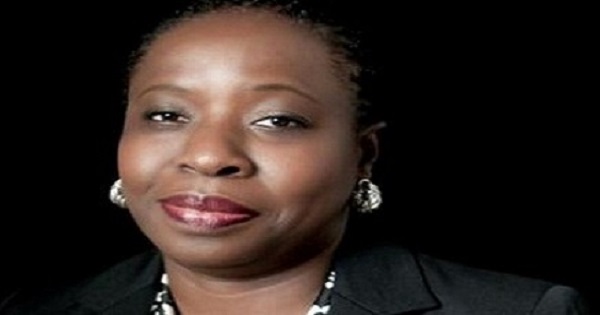Telecom
Undersea Cables Everywhere, No Internet for Nigerians

Many Nigerians are still without reliable, fast and affordable broadband internet services; as lack of carrier-neutral; “Right of Way” permits; frequent fibre cuts; and dearth of last mile infrastructure have all conspired to hinder the delivery of the critical resource, Nigeria CommunicationsWeek has learnt.
Today, it is much safer to say that Nigeria is swimming in an ocean of bandwidth with the avalanche of undersea cable systems, each with landing points on the shores of the country.
Unfortunately, all the submarine cables on the coast of the country are running at less than 20 percent capacity, meaning that most Nigerians are still without a drop of the roaring ocean.
There are cable infrastructures everywhere. They include: Main One, Glo, West African Cable System (WACS), South Atlantic 3/West Africa Submarine Cable (SAT-3/WASC) and ACE submarine cable system, among others.
But all these cable systems have had little impact as most Nigerians are still without access to cheaper internet services because lack of carrier-neutral or open access data centers, where everyone can get content.
Carrier-neutral data centers are not tied to any one service provider (telecommunications, ISP, or other), providing diversity and flexibility for the client seeking service.
Ms. Funke Opeke, chief executive officer, Main One Cable, argued in interview with DatacenterDynamics, that improving connectivity in Africa does not rest solely on laying fiber across the bottom of the ocean, but an orchestrated effort to get other critical infrastructure elements that are missing in the region.
The difficulties in obtaining ‘right of way’ also hinders the distribution of bandwidth- considered a major ingredient for telecommunications service delivery.
There are also the problems of frequent fibre cuts which affect the delivery services to potential subscribers at their domains.

Gbenga Adebayo, chairman, Association of Licensed Telecommunications Operators of Nigeria (ALTON), said that granting multiple operational licenses to operators to provide metro and national fibre infrastructure does not guarantee investment in that regard, but implementation of well-articulated policies that will encourage operators to invest their money.
He said government must go beyond granting of licenses to eliminating those barriers such as bottlenecks in securing ‘right of way’, impediments to smooth network operations- where operators are forced to pay levies that are not legalized, and vandalism.
Nodding in agreement, Opeke, the challenges is gradually being ameliorated, as MainOne Cable has started building terrestrial networks, interconnection points, landing stations, and its flagship data center, MDXi, located in Lagos.
Telecom
MTN Says New N6.98 USSD Charge Won’t Affect Airtime Recharge

Lynda Saint-Nwafor, chief Enterprise business officer, MTN Nigeria, has assured the network subscribers that the new end-user billing system for the use of USSD services will jot affect them.

USSD, otherwise Unstructured Supplementary Service Data codes are commonly used for banking transactions, airtime recharges, and other mobile services.
The telco said that there is no significant impact or change other than the fact that they will now pay the same N6.98 per session (120 seconds) with their airtime instead of direct bank debit.
Saint-Nwafor, said this during a chat with MTN MIP fellows, explaining that the Central Bank of Nigeria (CBN) and the Nigerian Communications Commission (NCC) have ordered telecom operators to ensure that the new billing model resolves trust issues and ensures transparency in the billing process.
“Our regulator insisted that at the end of every month, we are going to be providing history and statistics on the performance of the service across the board”, she explained.
Saint-Nwafor added that the new billing model has standardized messaging across all operators and ensures consistent communication with customers.
“We will take all the error codes and map them into messages that are standardised across the board. So, if you initiate a transaction, you will know if it is failing. And, when the transaction fails, you will know if it is from your bank or the telco,” she explained.
Telecom
Crypto Scam Unmasked: U.S. Recovers Record $225m in Global Fraud Bust

The U.S. government has recovered $225 million in what is now the largest seizure of funds linked to a cryptocurrency investment scam.

In a statement released Wednesday, June 18, the U.S. Attorney’s Office said the recovery followed an extensive investigation by the FBI and the U.S. Secret Service, using blockchain analysis and other forensic tools. The statement did not confirm whether any arrests had been made.
According to the authorities, the stolen funds originated from fraudulent cryptocurrency investment schemes that tricked victims into believing they were making legitimate investments. More than 400 individuals around the world, including dozens in the United States, were reportedly affected.
The operation involved a sophisticated money laundering network that carried out hundreds of thousands of blockchain transactions to obscure the source and ownership of the stolen assets.
“These scams prey on trust, often resulting in extreme financial hardship for the victims,” said Shawn Bradstreet, Special Agent in Charge at the U.S. Secret Service office in San Francisco.
Bradstreet added that U.S. officials hope the recovered funds can eventually be returned to the rightful victims.
Cryptocurrency investment fraud accounted for over $5.8 billion in reported losses in 2024 alone, according to the statement.
Telecom
Nnaemeka Ani Calls on African Techies to Rewrite the Narrative

In a rousing declaration that is electrifying minds across the continent, Hon. Nnaemeka Ani, Special Adviser on ICT to Enugu State Governor, Dr. Peter Mbah, has called for a homegrown digital revolution under the banner “Africa Will Rise: By Code, By Courage, By Us.”

Hon. Nnaemeka Ani
The message, part challenge, part philosophical—seeks to galvanize African innovators to move beyond buzzwords and build technology with impact and legacy in mind.
“Let’s stop building for hype. Let’s start building for legacy,” Ani urged while speaking to ICT journalists over the weekend. “Let’s stop waiting for someone else. Let’s start creating the future—on our own terms.”
At the heart of Ani’s vision is a shift from tech consumerism to tech authorship. With innovation hubs sprouting across cities like Enugu, Lagos, Kigali, Jo’Burg, and Nairobi, and a growing community of developers, engineers, and entrepreneurs determined to solve Africa’s unique challenges, the movement is already taking shape.
Ani emphasized that Africa’s future lies not in flashy apps or international admiration but in persistent, intentional solutions that uplift communities—solutions that digitize public services, bridge rural-urban divides, empower women and youth, and build resilience in food and climate systems.
“We have the talent,” he said. “Now it’s time to harness it—to stop building for likes and start building for lasting impact.”
With support from leaders like Ani and rising momentum in Africa’s tech corridors, it seems that a new chapter is being written—one line of code at a time.

 General News3 days ago
General News3 days agoNASRDA, Galaxy Space Firm Sign MoU on Satellite Connectivity

 Telecom3 days ago
Telecom3 days agoOver 1m Nigerians Reached through MTN Staff’s Digital and Community Outreach

 Telecom3 days ago
Telecom3 days agoMafab Gets 0724 Number Series, Launches Mcom 5G Brand

 News3 days ago
News3 days agoDBN Awards N13m in Grants to Tech Startups

 Telecom3 days ago
Telecom3 days agoNCC to Name, Shame Telecom Infrastructure Vandals

 News3 days ago
News3 days agoFCCPC Shuts France, Belgium, and Italy Visa Centres in Abuja Over Alleged Consumer Rights Violations

 Telecom3 days ago
Telecom3 days agoWSIS Review: Nigerian ICT Leaders Urged to Shape Global Digital Future

 E-Financial3 days ago
E-Financial3 days agoBank Customers Petition CBN over Illegal Deductions, Demand Action























